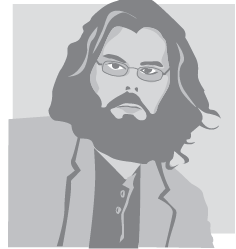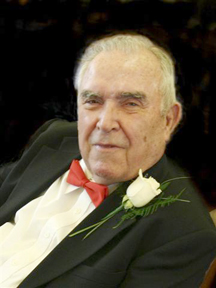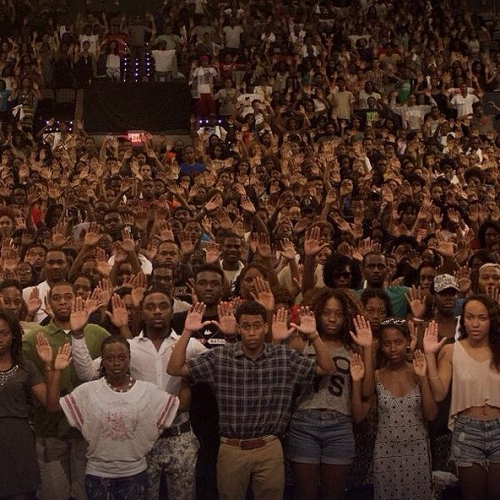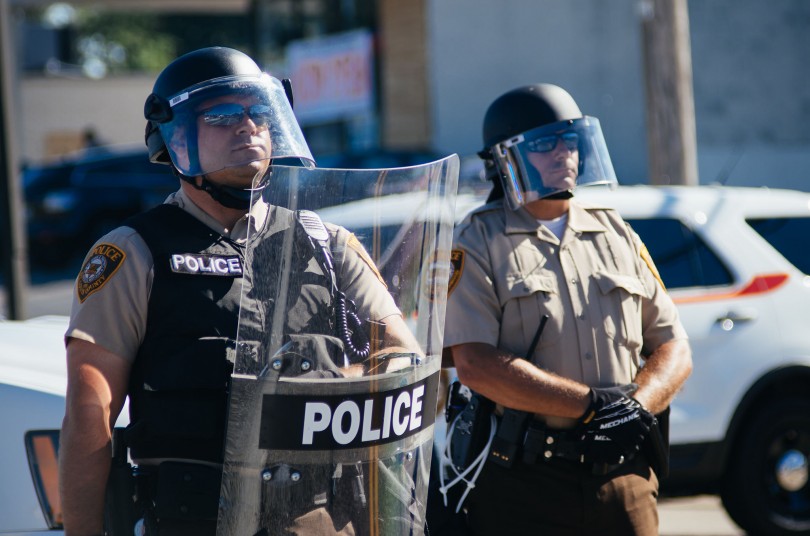aNewDomain — Edward Flynn seems to think that capturing video of cops at work reduces their effectiveness.
— Edward Flynn seems to think that capturing video of cops at work reduces their effectiveness.
Really?
Do you think police officers will become worse cops just because they might be recorded on citizen cell phones and their interactions posted on YouTube?
Carl Whitaker was a family therapist in the latter part of the last century.
He didn’t write much; most academic work with his name on it was written by his partner (Napier).
If you want to study Whitaker (or Satir, or really any of the great family-systems people of the 1970s through the 1990s, you have to get into bootlegged videos of family-systems conferences.
Look at this:
Whitaker shot from the hip.
He trusted that he had sufficient charisma to charm his clients, that he could forge relationships strong enough to withstand challenges – like the time he told an overweight client she was as big as a Mack truck and there was no reason for it.
He gets a lot of criticism from more modern thinkers and therapists, and maybe some of it is deserved. I would in no way encourage people to in any way denigrate their clients. But …
 Whitaker knew about homeostasis: the tendency for systems to seek a stable low point. Now, when the client arrives for therapy, when the family sit around the therapy room, they are there for a reason. They have found a stable low point and that point is too low. In other words, there is a problem.
Whitaker knew about homeostasis: the tendency for systems to seek a stable low point. Now, when the client arrives for therapy, when the family sit around the therapy room, they are there for a reason. They have found a stable low point and that point is too low. In other words, there is a problem.
Whitaker would get into the system. Sort of guerilla therapy. He’d relate to different people in the system, cause chaos, throw around a ball or a Frisbee. He’d disrupt: help the parents to play and the children to be responsible, force people out of their roles and into new ones.
He didn’t really have a lot of rhyme or reason, which is why he hardly wrote: there was nothing to say.
Disrupt. That’s his whole message, really.
Look: If you get into the system and disrupt it, it has to change. The system is already in a bad place and the odds are better than even that when you disrupt it, it won’t get worse. The possible outcomes are worse, the same, or better, and if things are bad enough for the family to seek change, better is really the most likely outcome.
We all loved Whitaker.
Everyone doesn’t love #BlackLivesMatter. Some of the statements we hear about bad behavior or bad philosophy on their part is likely undue, vestigial racism or just the system trying not to be moved off its stable low point. But #BlackLivesMatter appears to know what Whitaker knew.
The Democratic party claims to be friendly to race issues but their initial responses to the BlackLivesMatter movement, especially when asked pointed questions at rallies, were less than ideal responses. They were, by and large, the same defensive, fragile responses white people always give when confronted with their own racism.
 People asked, why protest Democratic rallies?
People asked, why protest Democratic rallies?
Why not start in the Red camp, where the racism is so much more obvious?
Then again: Why bother?
The movement knows where it can get actual change. The Democratic party is a family that has shown up for therapy, and things are bad there already. Disrupt the system and maybe you can get some change and that change will probably be for the better. Protest the Republican conventions and … well, the Civil Rights movement knows about fire hoses, jail and dogs. Those guys aren’t in the therapy room, can’t even see that their system is dysfunctional yet.
Do you think we’ve wandered off track? Because we haven’t, not one step.
So Flynn thinks police behavior is in danger of changing because people with smartphones are just disrupting the way they do their jobs ?
Getting into the system, relating to the people who comprise it, forcing them to abandon old roles or take on new ones?
Policing has been at a stable low point for a long time, hasn’t it? Isn’t the very concept of a police force open for questioning?
Why are they down in poor neighborhoods of color writing tickets for minor infractions that people can’t afford to defend, never mind pay, but not in the corridors of power – the banks and the coal company boardrooms – writing tickets for major infractions, investigating the real crimes that keep poor people poor, that wreck the very air we breathe?
Why does the FBI bank crime stats page refer only to crimes against banks?
So cops might do their jobs differently if their actions are recorded on video? Good.
For aNewDomain, I’m Jason Dias.
Image one: Zwakkpix.com, All Rights Reserved; image two: by Nick Taylor, (Flickr: Mack Truck) [CC BY 2.0], via Wikimedia Commons.













